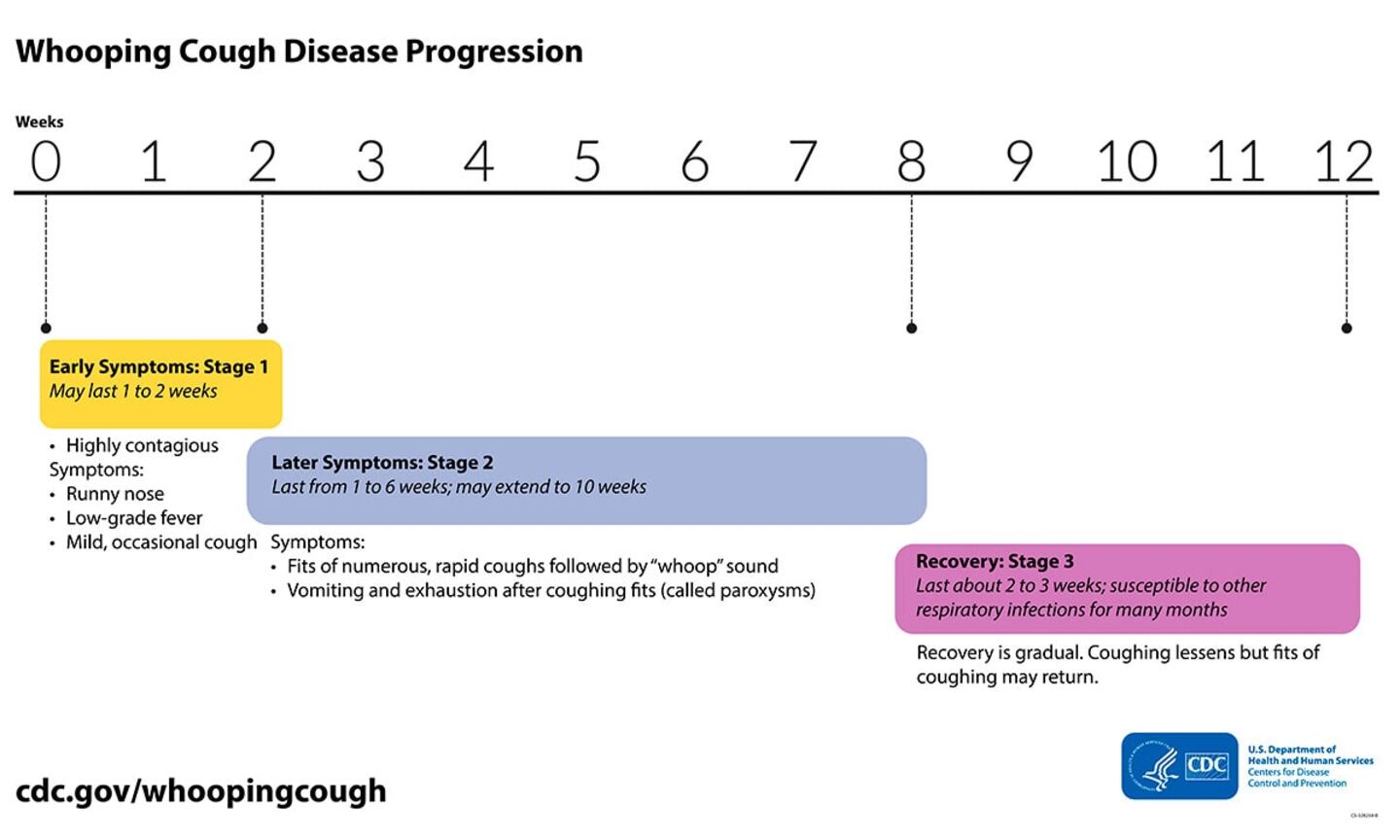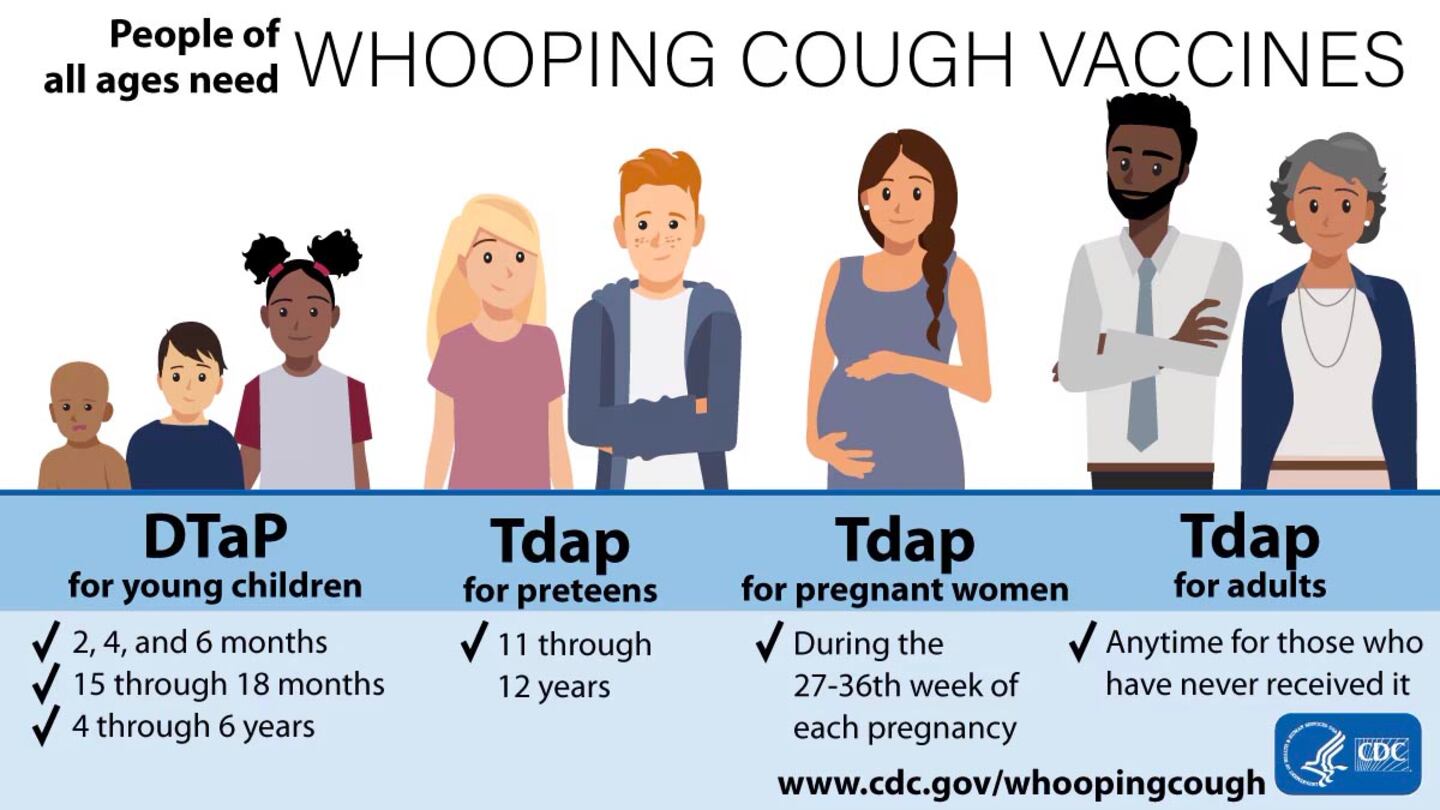The Centers for Disease Control and Prevention said that cases of whooping cough have spiked, but are still around the same amount of illnesses from before the COVID-19 pandemic.
The CDC said that there have been five times as many cases this year as of Oct. 5 as there were last year at this time, reporting 17,579 cases. Last year at the same time there were only 3,962 reported cases, according to USA Today.
In 2019 there were 18,600, Fox News reported.
The agency said that COVID-19 mitigation measures - masking and remote learning - likely kept the numbers lower during the pandemic.
Most cases for the week ending on Oct. 5 were in the Middle Atlantic and East North Central portions of the country, each accounting for 62 cases of the current 302 cases, CDC said.
For the past year, Pennsylvania has the highest number of cases with 2,209, New York (factoring out New York City) is second with 1,228, then it’s Illinois, California, Wisconsin, Washington, Ohio, Texas, Oregon, and Arizona.
What is whooping cough?
“Whooping cough, also known as pertussis, is a very contagious respiratory illness,” the CDC said. It may start like a cold but the cough can last for weeks or months.
It also goes by the name pertussis and is caused by a bacteria called Bordetella pertussis. It is only found in humans.
The bacteria attach to the cilia of the upper respiratory system and release toxins that damage the cilia and cause the airways to swell.
What are the symptoms?
The early symptoms of whooping cough sound like a normal cold but the coughs develop into ones that sound like “whoop” when those who are sick gasp for air after coughing.
The symptoms may be a bit different for babies and young children who don’t cough but instead have difficulty breathing, the CDC said.
Symptoms can appear in five to 10 days after exposure or as long as three weeks.
Early symptoms can last for up to two weeks and include a runny or stuffed-up nose, low-grade fever and a mild, occasional cough.
After two weeks, coughing fits, also known as paroxysms, may start. They can last for a week to six weeks. In some cases, they can last for 10 weeks, with the cough getting worse and more common.
During and after the coughing fits people can:
- Make a high-pitched “whoop” noise while inhaling
- Vomit
- Feel tired after coughing, but fine between fits
- Have difficulty sleeping
- Struggle to breathe
- Fracture a rib
Whooping cough can be dangerous, even deadly, in infants and young children, especially if they have not had all their vaccines.
About one in three children younger than a year old will need to be hospitalized if they contract the illness. About 1% of babies who get whooping cough die, the CDC said.
It is less serious for teens and adults, but they may get sick enough to need hospitalization.
How is it treated?
Whooping cough is treated with antibiotics. The earlier treatment starts, the infection may be less serious. Usually by week three if antibiotics haven’t begun, they won’t help, even if people are still having symptoms, the CDC said since the infection itself is usually gone. The symptoms remain because of the damage the infection did and the respiratory system needs to heal.
If it is advanced enough to need hospitalization, then care involves keeping breathing passages clear, monitoring breathing, giving oxygen if needed, and preventing/treating dehydration.
At home, the CDC said to take antibiotics as directed, keep the home free of coughing triggers, use a cool mist humidifier, eat small meals every few hours to avoid vomiting and get plenty of fluids.
Cough medicine, according to the CDC, won’t really do anything, so avoid taking it unless told by a medical provider.
How to protect yourself?
The best way to protect yourself from contracting whooping cough is to be vaccinated.
The CDC said young children, preteens and pregnant women should get a whooping cough vaccine, as do adults who have never had one.
There are some cases where someone should not get the vaccine, but you should talk with your healthcare provider about the risk.
©2024 Cox Media Group






